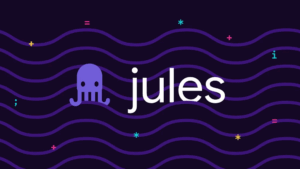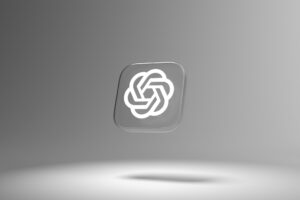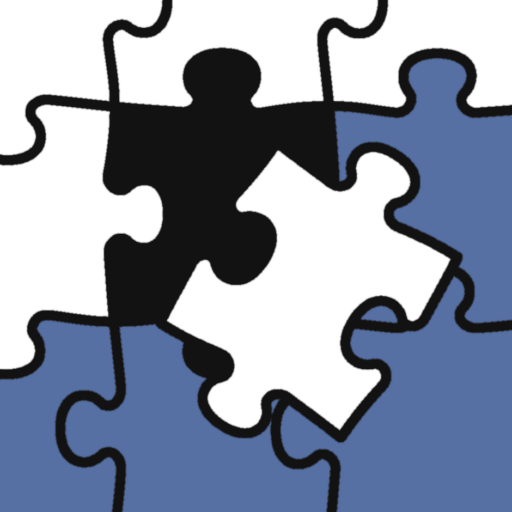Is AI Moving from "Writing" to "Thinking"? How Google's "Jules" May Rewrite the Future for Programmers
Is the day coming when programmers stop writing code?
What was once a fantasy in the world of science fiction—an AI autonomously developing software—is now becoming a reality with surprising speed.
Google's long-awaited public release of its AI coding agent, Jules, is set to overturn the conventions of software development with capabilities far beyond our imagination. A future where human programmers no longer need to type on a keyboard is almost here—and it's a little bit scary.
Jules, our asynchronous coding agent, is now available for everyone.
Code is for AI; Creativity is for Humans
The arrival of Jules has fundamentally changed the role of AI in software development. Previous AI assistants were merely "aiding humans," providing features like code auto-completion or partial generation.
But Jules is different. It autonomously handles tasks from bug fixes to new feature implementation and even pull request creation, as if a talented colleague were quietly working in the background.
This revolutionary change is powered by the advanced reasoning capabilities of Google's most powerful model, Gemini 2.5 Pro.
Gemini 2.5 Pro doesn't just understand code syntax; it has the ability to reason about higher-level concepts like overall project context, design intent, and even testing strategies. This makes Jules more than just a code-generation tool; it's a "thinking" AI agent with the potential to dramatically boost our productivity.
As a systems integrator who has worked on countless development projects, I'm confident that Jules will finally fulfill a long-held dream for developers: to be freed from tedious, time-consuming tasks and focus on more essential problem-solving.
The Dramatic Productivity Shift Jules Brings
One of Jules's biggest strengths is its "asynchronous execution capability." While a developer is focused on another task, Jules can continuously perform code changes and refactoring in a cloud-based, isolated environment.
This allows developers to work on multiple tasks in parallel, making it feel like they're using time at double the speed. For example, a complex bug fix or a large-scale code change spanning multiple files can be handled automatically by simply giving Jules an instruction.
Once a change is complete, Jules automatically creates the appropriate commit messages and pull requests through its integrated GitHub workflow, significantly streamlining the code review process.
The "Critic" Feature: An AI That Reviews Itself
Another groundbreaking feature in Jules is the newly introduced "Critic." This is a remarkable system where the AI itself self-reviews the code it generates.
The Critic identifies potential bugs, inefficient logic, or security issues and sends feedback back to Jules. Jules then rewrites the code based on this feedback and repeats the correction cycle until the Critic determines it's "OK."
Unlike traditional linters (static rule checks) or tests (functional verification), the Critic provides a comprehensive quality assessment by understanding the code's "intent" and "context." This is expected to dramatically reduce the human review burden, as the code that reaches the developer has already undergone an internal review and correction by the AI.
I once worked on a project converting COBOL source code to C#. If the Critic feature had existed back then, I'm sure it would have saved a lot of effort. I'm excited by the possibilities this presents.
An AI that thinks, learns, and improves on its own—this is proof that AI has evolved from "writing" to "thinking."
How Will the Programmer's Job Change? A New Collaborative Model with AI
The rise of advanced AI agents like Jules is forcing us to rethink the role of a "programmer." As AI takes over code implementation and routine tasks, human developers will be able to dedicate more time to strategic and creative work. The following three roles will become more important.
The Precision of "Verbalized Instructions"
"Prompt engineering"—the ability to precisely tell the AI what to do, why, and how—will become increasingly crucial. Ambiguous instructions will lead to poor results. To get high-quality output, humans will need to provide the AI with clearer and more abstract thinking.
The Ability to "Critique" and "Judge" Results
Even if Jules's code passes the Critic's review, it still requires a final human review and approval. AI output isn't yet perfect and has its limitations. For example, Jules might "get too clever" and insert unintended logic. The ability to evaluate the AI's output from a broader business perspective—considering security and cost—and to instruct it to make corrections will be essential for future developers.
This isn't just about judging code correctness; it's about a high-level "judgment" to select the "optimal solution" based on the project's overall goals and business value.
A Shift to Creativity and Strategic Thinking
Freed from routine tasks, developers can focus on higher-level creative activities like defining complex problems, designing system architecture, exploring new technologies, and devising strategies to accelerate business growth.
Programming will evolve from a hands-on task to the role of a "conductor," thinking, planning, and directing the AI. As an infrastructure engineer, I've seen firsthand how Jules has made it easier for me to enter the world of application development, precisely because the focus has shifted to "thinking and judgment."
However, this future also presents new challenges for us. The ability to understand AI-generated code and grasp the logic behind it will be more important than ever.
There are still some challenges, such as the AI occasionally suggesting "outdated information" based on its past training data or having inconsistent response times. We need to continuously "update" our own skills to keep pace with AI's evolution.
Start with Jules Today! Experience AI Development with a Free Plan
Jules offers several pricing plans to let everyone experience its powerful features. The free "Introductory Access" is a great starting point, with basic limitations for project exploration.
| Plan Name | Overview | Daily Task Limit | Concurrent Tasks |
|---|---|---|---|
| Introductory Access | Basic access for project exploration | 15 tasks | 3 tasks |
| Google AI Pro | Ideal for daily coding with higher limits | 100 tasks | 15 tasks |
| Google AI Ultra | For large-scale and intensive development cycles | 300 tasks | 60 tasks |
For students, a free one-year subscription to Google AI Pro is available—a fantastic opportunity not to be missed. Anyone else can try Google AI Pro for free for one month. Simply visit the official Jules website (jules.google), link your GitHub account, and you can start collaborating with AI immediately.
First Steps for Beginners: Getting Started with Jules
If you're new to Jules, I recommend starting with tasks like "minor bug fixes" or "feature improvements" on an existing codebase. I did the same when I first tried it. You'll quickly see how capable Jules is as it understands your existing coding style and design patterns to propose natural, fitting changes.
However, for now, creating a new project from scratch still requires human involvement. Jules can sometimes stop mid-task or fail to resolve dependencies. For complex new development, it's wise for humans to take the lead and use Jules as a supportive tool.
It's also crucial to refine your "conversation" with Jules. For example, if the AI-generated code has an error, giving Jules the exact error message often helps it work toward a solution. Sometimes, getting a solution from another LLM (like Claude) and feeding it back to Jules can make the process even smoother. This "dialogue with AI" is a skill we, as humans, need to cultivate.
A Step Into the Future: How Will You Engage with AI?
The sight of "AI writing code," once a distant future, has become a reality with Google Jules. Some might see this as a "threat" where AI will take over most of a programmer's job.
But I disagree. I see Jules as the ultimate partner that frees our human creativity, allowing us to focus on higher-level thinking and problem-solving.
As a systems integrator who has worked on various systems, I can say this: AI is a powerful tool for automating complex tasks and boosting productivity. But how we use that AI and what value we create with it ultimately depend on our human "intent" and "judgment."
This technological innovation is widening the gateway to programming, heralding an era where anyone can step into the world of application development. At the same time, for professional developers, it's prompting an evolution into a "thinking" developer—one who needs not just the ability to write code, but also the capacity to understand, guide, and critique AI.
Jules is still evolving, with challenges like inconsistent response times and occasional reliance on outdated information, but its pace of progress is astonishing. I hope this column inspires you to explore Jules's potential and try a new collaborative model with AI.
So, are you ready to open the door to the future of software development with Jules? Are you prepared to ride this wave of change and leap into a new "realm of creation"?



